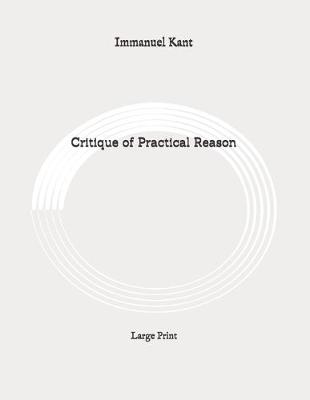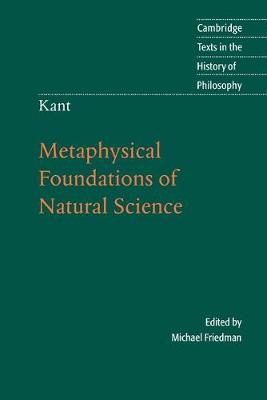Cambridge Texts in the History of Philosophy
7 total works
Religion within the Boundaries of Mere Reason is a key element of the system of philosophy which Kant introduced with his Critique of Pure Reason, and a work of major importance in the history of Western religious thought. It represents a great philosopher's attempt to spell out the form and content of a type of religion that would be grounded in moral reason and would meet the needs of ethical life. It includes sharply critical and boldly constructive discussions on topics not often treated by philosophers, including such traditional theological concepts as original sin and the salvation or 'justification' of a sinner, and the idea of the proper role of a church. This new edition includes slightly revised translations, a revised introduction with expanded discussion of certain key themes in the work, and up-to-date guidance on further reading.
Immanuel Kant's Groundwork of the Metaphysics of Morals ranks alongside Plato's Republic and Aristotle's Nicomachean Ethics as one of the most profound and influential works in moral philosophy ever written. In Kant's own words its aim is to search for and establish the supreme principle of morality, the categorical imperative. Kant argues that every human being is an end in himself or herself, never to be used as a means by others, and that moral obligation is an expression of the human capacity for autonomy or self-government. This edition presents the acclaimed translation of the text by Mary Gregor, together with an introduction by Christine M. Korsgaard that examines and explains Kant's argument.
This seminal text in the history of moral philosophy elaborates the basic themes of Kant's moral theory, gives the most complete statement of his highly original theory of freedom of the will, and develops his practical metaphysics. This new edition, prepared by an acclaimed translator and scholar of Kant's practical philosophy, presents the first new translation of the work to appear for some years, together with a substantial and lucid introduction.
Kant is the central figure of modern philosophy. He sought to rebuild philosophy from the ground up, and he succeeded in permanently changing its problems and methods. This revised edition of the Prolegomena, which is the best introduction to the theoretical side of his philosophy, presents his thought clearly by paying careful attention to his original language. Also included are selections from the Critique of Pure Reason, which fill out and explicate some of Kant's central arguments (including famous sections of the Schematism and Analogies), and in which Kant himself explains his special terminology. The first reviews of the Critique, to which Kant responded in the Prolegomena, are included in this revised edition. The volume is completed by a historical and philosophical introduction, explanatory notes, a chronology, and a guide to further reading.
The Metaphysics of Morals is Kant's major work in applied moral philosophy in which he deals with the basic principles of rights and of virtues. It comprises two parts: the 'Doctrine of Right', which deals with the rights which people have or can acquire, and the 'Doctrine of Virtue', which deals with the virtues they ought to acquire. Mary Gregor's translation, revised for publication in the Cambridge Texts in the History of Philosophy series, is the only complete translation of the whole text, and includes extensive annotation on Kant's difficult and sometimes unfamiliar vocabulary. A new introduction by Roger Sullivan sets the work in its historical and philosophical context. This volume will be of wide interest to students of ethics and of legal and political philosophy.
Kant is the central figure of modern philosophy. He sought to rebuild philosophy from the ground up, and he succeeded in permanently changing its problems and methods. This new translation of the Prolegomena, which is the best introduction to his philosophy, presents his thought clearly by paying careful attention to his original language. Also included are selections from the Critique of Pure Reason, which fill out and explicate some of Kant's central arguments, and in which Kant himself explains his special terminology. The volume is completed by a historical and philosophical introduction, explanatory notes, a chronology and a guide to further reading.
Kant was centrally concerned with issues in the philosophy of natural science throughout his career. The Metaphysical Foundations of Natural Science presents his most mature reflections on these themes in the context of both his 'critical' philosophy, presented in the Critique of Pure Reason, and the natural science of his time. This volume presents a translation by Michael Friedman which is especially clear and accurate. There are explanatory notes indicating some of the main connections between the argument of the Metaphysical Foundations and the first Critique - as well as parallel connections to Newton's Principia. The volume is completed by an historical and philosophical introduction and a guide to further reading.


